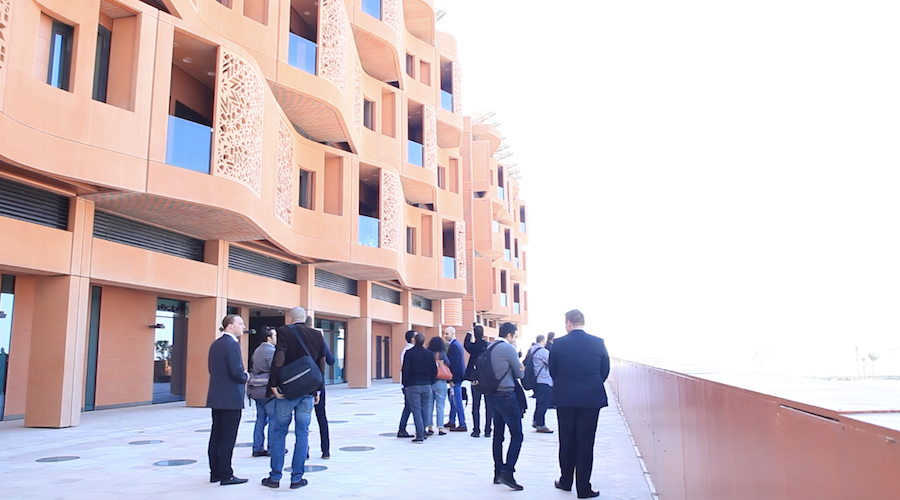How to build smart cities

After growing accustomed to smart phones, cars, TVs and even smart homes, there's a new wave of fascination with smart cities. Indeed, we are living in an age where information technology has become a cornerstone of our daily lives.
A smart city is one that relies on telecommunications to provide its services and infrastructure, with the aim of improving economic growth, sustainability and a better quality of life. Such an initiative relies on eight building blocks: smart governance, smart energy, smart transportation, smart infrastructure, smart healthcare, smart technology, smart buildings and smart citizens.
Smart Cities represent a $1.5 trillion market opportunity, according to Forbes, with 26 smart cities expected to be built by 2025, half of which will be in Europe and the US.
Meanwhile, MENA countries - specifically the UAE - are attempting to catch up with this global trend and provide the best services to their citizens. The Emirates are home to several initiatives like Smart Dubai and Masdar City.
The region’s growing interest in the subject has led to several events and discussions around the possibilities Smart Cities hold, the role of private and public sector, and how entrepreneurs act as catalysts for innovation.
We had the chance to speak to Mani Vadari, director of the US based Smart Cities Council, who gave valuable advice to entrepreneurs who want to be an active part of a smart city initiative, during The Smart City Opportunity for Startups and Innovators. The event was organized by The Indus Entrepreneurs (TiE) and held at in5.

Building a smart city in any corner of the world is based on several important factors, notably "having a vision of what we want to own, or be, or do in 25 years,” said Vadari, citing Dubai as an example. He also emphasized the importance of specifying targets - and ways of achieving them - adding that Information Technology has to be at the service of citizens through multi-service platforms.
In the same context, Community Jameel and Wamda will be hosting an MIT Media Lab Dubai workshop tackling solutions for sustainable cities, led by designers, scientists, engineers and artists.
Since smart cities can open many doors for entrepreneurs to innovate and excel, Vadari had the following tips for them.
Think creatively to pinpoint problems
Fresh thinking is needed when looking for specialized services and solutions for a smart country, Vadari said. Challenges addressed must be relatable by the majority of people in your city. “If I say I want to re-arrange the chairs in this room, no one will care. While my action might relieve some people, it will not be a turning point that will change a lot of people’s lives,” Vadari noted.
Something that works in one country might not be feasible in another
For example, adopting the use of motorcycles to solve traffic problems doesn’t work in Dubai like it does in Seattle, because of the weather. “The points you make must be relevant to your country,” Vadari said.
Try to find solutions
After identifying problems or sectors to be addressed, entrepreneurs must then find the suitable solution. “It is important to find a solution that people would want to use,” said Vadari, who views Uber as a perfect example of a successful solution to traffic and taxicab issues. Having a solution that is desirable is even better.
“Look at Apple for example,” Vadari said. “Were we really in need of iPhones? But they invented a product that everybody wanted to have, and have sold millions. What matters is that you pinpoint [the solution] - or create an industrial device."

Perfect solutions don't exist
You can never offer a perfect solution, as you don’t know what things will be like in a few years’ time. The current version of Google for example, is very different from the one that was created years ago, according to Vadari. "Start with a small solution that can be offered to your customers," he advised, "provided it can be scaled and people would want [to use] it".
Creative apps and products are key
Innovation remains a cornerstone for building a smart city, and it's important to anticipate which apps and products will appeal to future generations. Vadari advised the audience to offer a solution that would maximize the number of users. "If I create one app to control and direct [all] the energy of my home, then a lot of users will stop using function-specific apps for air conditioning, water heating, lighting control and such." And of course, cost must be taken into consideration.
Don't be afraid to rethink your business plan
And for innovation to continue, entrepreneurs must research and re-invent their own business plan to meet their goals. There is no doubt that as more countries in the region exhibit an interest in smart cities, entrepreneurs will have lots of opportunities to hone their skills and offer their talents in a healthy competitive market. We can't wait to see what ideas and efforts will spring forth.


